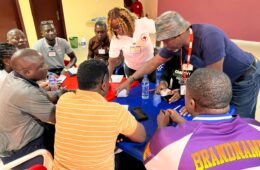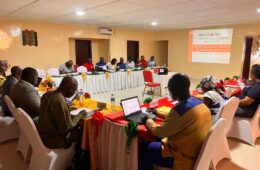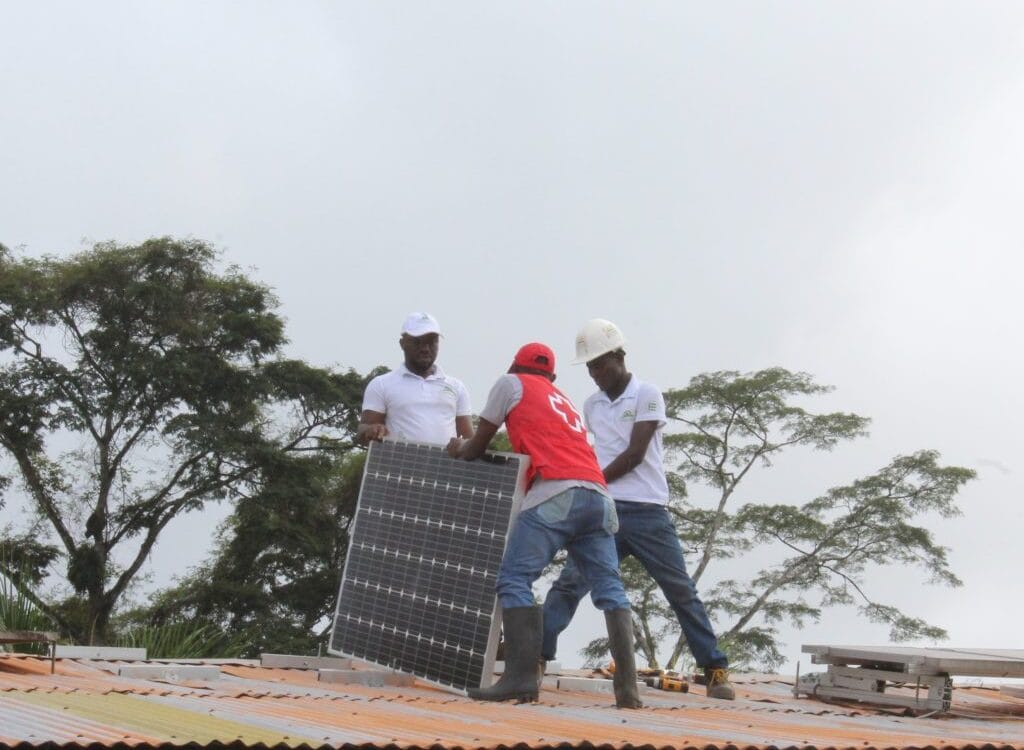 October 30, 2019
October 30, 2019As Liberian Red Cross installs solar panels at Primary Health Care facilities
The vast majority of health facilities in rural Liberia have extremely limited or no access to electricity. Imagine having a medical emergency at night or delivering a baby without light! One tragic effect of poor facilities is poor treatment or services, and for this reason, Liberia continues to experience maternal and neonatal deaths regularly that could have been prevented.
“Since the beginning of this year (2019), this county (Margibi) has had 15 maternal deaths and 50 neonatal deaths as a result of several factors including lack of electricity and poor referral, among others”, the County Surveillance officer for Margibi Leroy Maximore has said.
Mr. Maximore said prior to Ebola, the Health Care System was greatly challenged, and the issue of detecting and mechanisms for preventing infectious diseases were challenging. He said partners including the Liberian Red Cross are complementing the efforts of the government to revamp the health sector but there are still pressing challenges that need to be addressed sufficiently.
“One of our key challenges is lightening at our health facilities especially in the rural areas. Our staffs including midwives and nurses use their phone or flash light to conduct deliveries and response to other maternal health cases and emergencies at night”, Mr. Maximore asserted.
His assertion also confirmed recent assessment which revealed the account of health practitioners that midwives are using phone and flash lights to deliver pregnant women especially in some remote health facilities. A great deal of health centres and health posts are in need of electricity to be more effective and efficient at night.
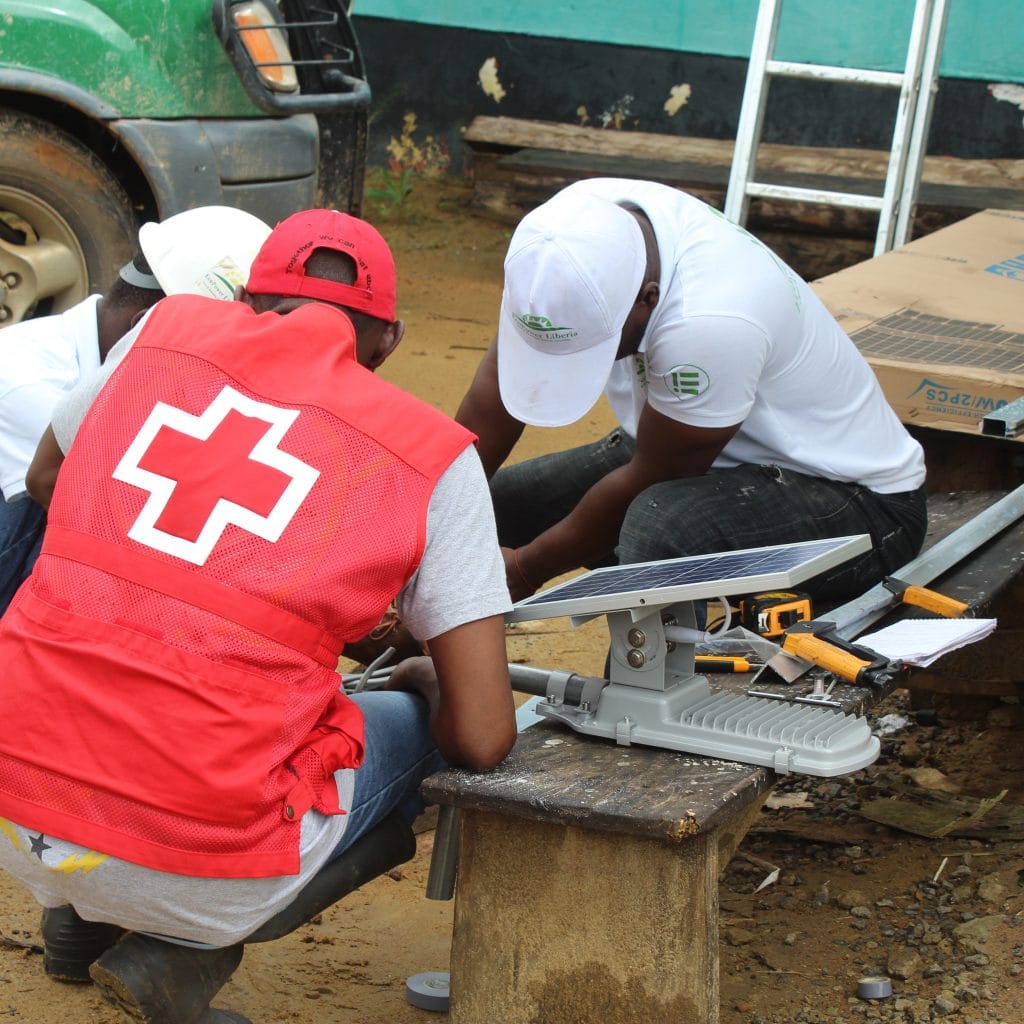
But most of the rural health care centres are still far from being connected to the electrical grid. Some of the facilities traditionally relied upon expensive and difficult to maintain diesel generators. But unfortunately, the cost is very high and so they are often not used; and when they are, it’s common that they breakdown early on due to poor maintenance and high running costs. Even at the County referral hospitals, power is ration.
The Liberia National Red Cross Society with support from the Bill and Melinda Gates foundation through the IFRC in 2017 launched a project titled: Strengthening Communities Resilience through Epidemic Preparedness (SCREP). Providing solar power to promote safe institutional delivery at health facilities is one of the high priorities under the project. Ten primary Health Care facilities in Margibi, Bomi and Montserrado have benefited from the new solar panel installation to ensure that they continue meeting critical health needs, even at night. In addition, the delivery rooms of CH Rennie Hospital in Margibi and the Liberia Government hospital in Bomi Counties also received solar lights to substitute power breakdowns. During power rationing at County referral hospitals, the delivery rooms are also affected but the provision of solar lights will greatly facilitate safe delivery at these facilities.
“This Yeaman Community clinic has been in complete darkness. But today we are happy to say thank you to the Red Cross and its partners for this worthy intervention. This support will not only provide light but it will help us curtail the number of neonatal deaths”, the Margibi County Surveillance officer said in appreciation to the Red Cross.
These health centers are dedicated to providing free public health services to community members who have no or limited access to income, insurance and cannot afford to pay their medical bills. Many of these clinics are in remote areas and are the only source of health care for the surrounding population. Electricity has been a crucial need in building a resilient health sector particularly in rural and remote communities in saving lives.
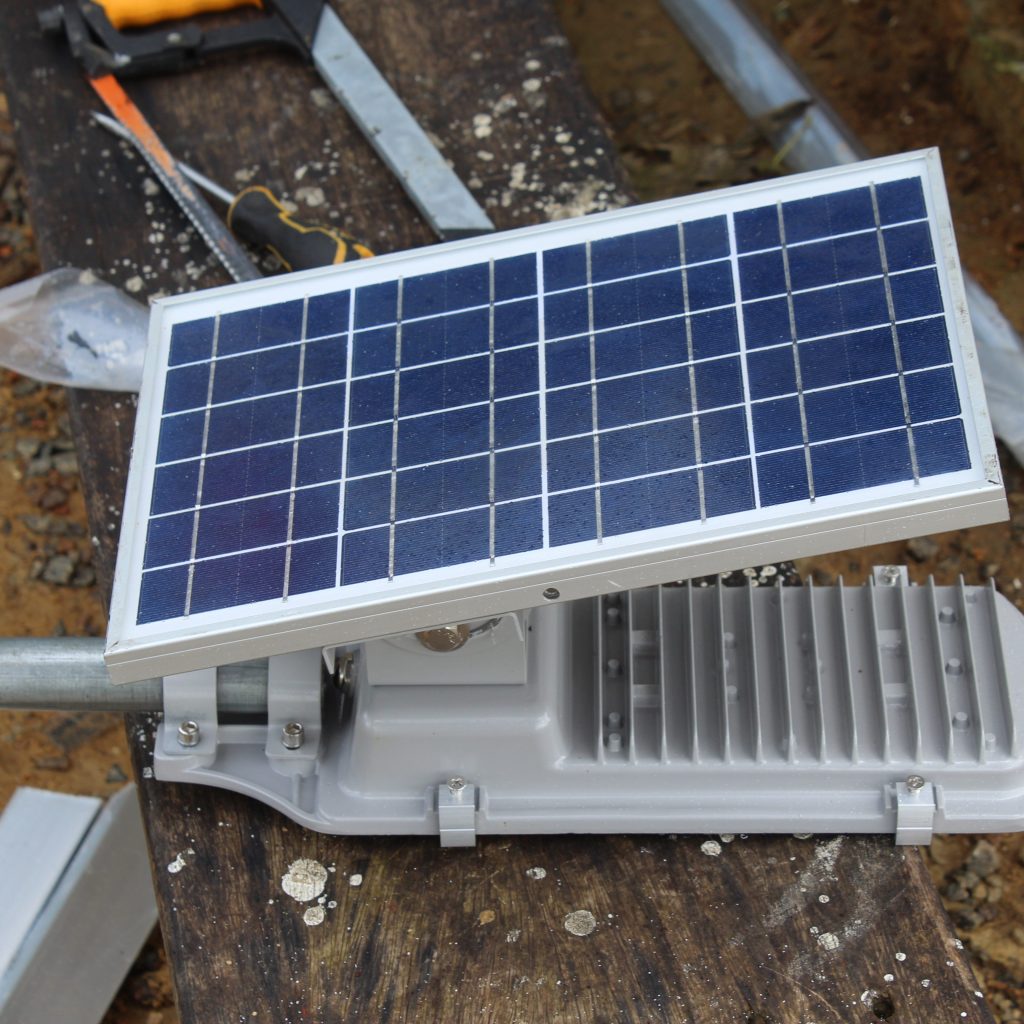
It is obvious that with the scarcity of electricity and unreliable lightening, midwives are forced to deliver babies in the dark. ”It gives us hard time when we cannot find battery for the flashlight and our phones are off. We reuse the old batteries and the light cannot be brighter to allow us focus on both the mother and the baby. This has been challenging but thankfully, the Liberian Red Cross has addressed this crucial need”, Madam Melemu K. Wonto a Registered Midwife expressed.
The Liberian Red Cross recognized the pressing need for a safe and sustainable energy solution, and has covered 12 of the rural health facilities in Margibi, Bomi and Montserrado Counties. The Liberian Red Cross in 2017 installed solar lights at 13 rural health facilities in Bomi with support from the Canadian Red Cross. Again, four health Facilities including the County Health center in Bomi benefitted from this current solar panel installation.
“We want to continue the installation of solar panels for lightening at rural health centers and it can be possible and achievable only through collective efforts and increasing support from everyone”, the Liberian Red Cross Acting Secretary General said.
Listening to the stories of health service providers in rural areas is always a good reminder of the importance of light. “We could not perform our duties well with the lack of electricity in the facilities. If a woman goes in labor at night or face complication during delivery, it could be nearly impossible for us to save the mother or baby’s life,” remarked Madam Melemu K. Wonto a Registered Midwife.
At the moment, Liberia is still recovering and rebuilding from the devastation of the Ebola virus Disease that extremely affected and overwhelmed the already poor health system of the country. In the rural areas, health centers are extremely challenged particularly in rendering effective and efficient care services at night, the need for reliable electricity is greater than ever.
But the installation of these solar lights by the LNRCS will help build stronger and more resilient health facilities that will be more effective and efficient during the day and even at night in responding to emergency cases. “We are proud to coordinate this effort with our partner the Bill and Melinda Gates Foundation through the IFRC to provide solar lights to rural health facilities as a mean of improving healthcare delivery”, Mr. Ambullai Perry, the LNRCS acting Secretary General pointed out.
“We want to ensure that the next child born in the local clinics will be born in save condition. We are very grateful to our partner for this incredible support which makes us proud to complement the effort of the government in this endeavor”.
The Margibi County Surveillance officer has early indicated that it has been challenging to reduce or stop all home deliveries in the rural areas due to lack of electricity at the health facilities at night; but local authority in the Borlola Township of Margibi has welcomed the latest intervention by the Red Cross and said it sees no reason for further home delivery.
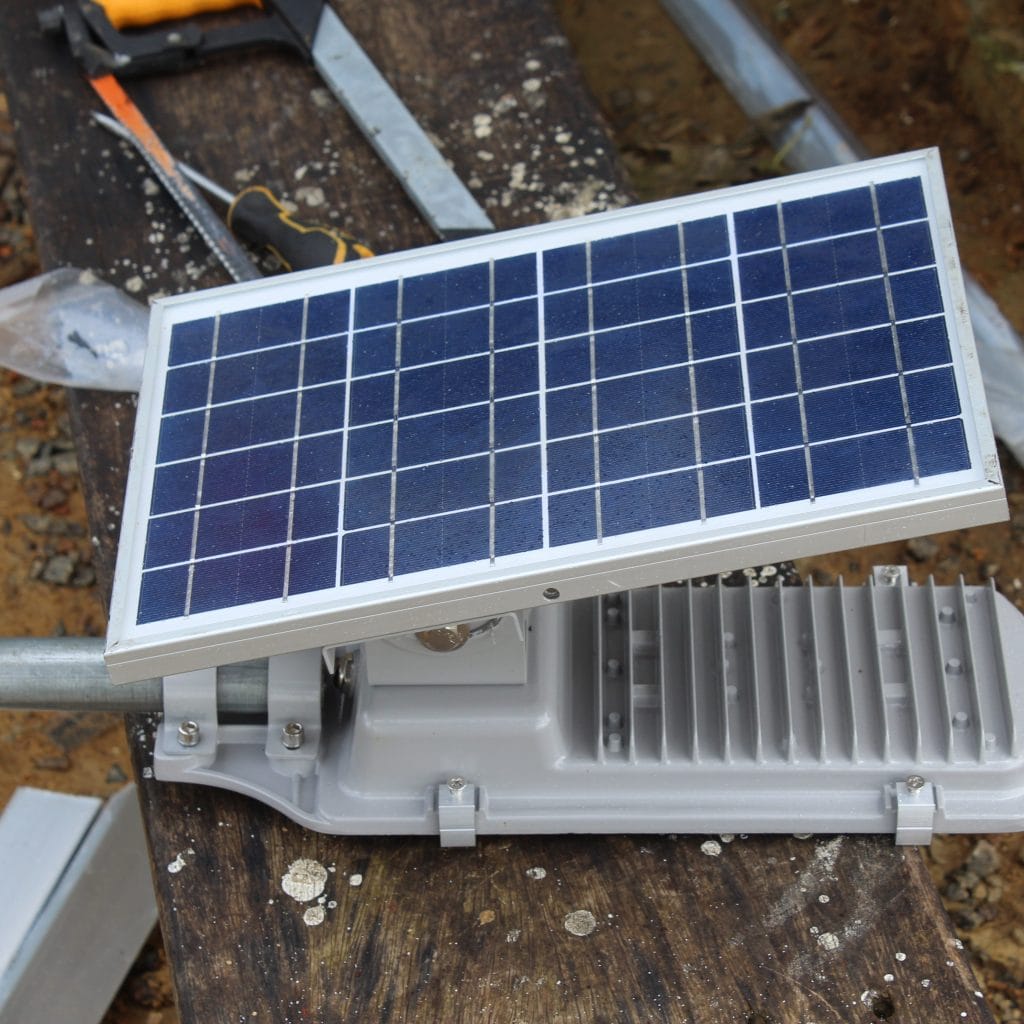
“Now there is no reason for home delivery and we will impose fine on anyone giving birth at home and not in a safe, clean and solar light environment”, Mr. James S. Weaton, commissioner of the township warned. He added: “Today, I am very much excited. You (Liberian Red Cross) made a big difference in our township. I will encourage your donors and partners to increase support toward this project so that every rural health facility be lighted with solar light.”
Ebola struck more than three years ago, but the recovery will take place over many years. “We are committed to being a part of this recovery by strengthening community resilience through our project activities and we stand ready to respond to other disasters as we face the impacts of Ebola and climate change” Mr. Perry said.
Since late 2017, LNRCS, with funding support from the Bill and Melinda Gates Foundation, has been implementing the project in 42 communities in 7 districts of Bomi (Dewoin and Klay); Margibi (Gibi and Mamba Kabba)and Montserrado ( Artington, Toddee, and Careyburg). Most of these communities are `hard to reach’ geographically and the population in these communities have very poor access to health- with the nearest PHC being 5 to 15 kms away. Some of these communities are in flood and drought prone areas, with acute scarcity of safe drinking water.
As part of the project activities, the LNRCS has distributed 12,320 bottles of water guard, cleaning up tools, and Improving health literacy and awareness of infectious diseases as well as enhancing community-based surveillance aimed at strengthening communities’ preparedness and response for disease outbreaks in catchment counties.





